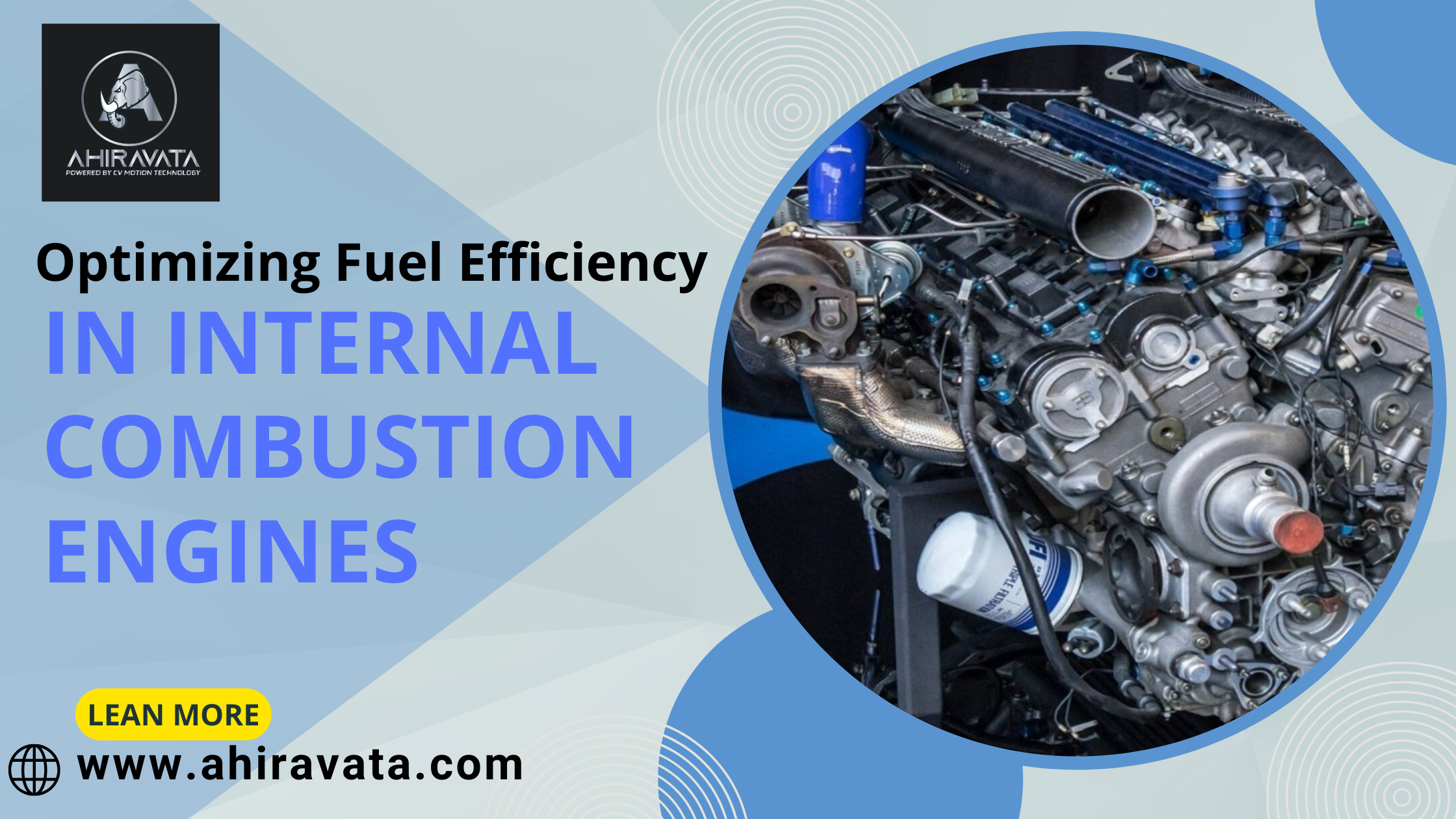Optimizing Fuel Efficiency in Internal Combustion Engines

Strong 8k brings an ultra-HD IPTV experience to your living room and your pocket.
Internal combustion engines (ICEs) remain the backbone of the automotive, industrial, and transportation sectors. Despite advancements in electric and hybrid technologies, ICEs continue to dominate due to their reliability and widespread infrastructure. However, optimizing fuel efficiency in internal combustion engines is crucial for reducing fuel costs and minimizing environmental impact.
Understanding Fuel Efficiency in Internal Combustion Engines
Fuel efficiency in internal combustion engines refers to how effectively the engine converts fuel into usable energy. Factors such as engine design, fuel type, combustion process, and maintenance influence overall efficiency. By improving these aspects, vehicle owners and manufacturers can enhance performance while lowering emissions.
Key Strategies to Improve Fuel Efficiency
1. Enhancing Combustion Efficiency
The combustion process inside an internal combustion engine directly impacts fuel efficiency. Modern engines use technologies such as direct fuel injection, turbocharging, and variable valve timing to improve the air-fuel mixture, leading to more complete combustion and reduced fuel wastage.
2. Using High-Quality Fuel and Lubricants
The type of fuel used in an internal combustion engine affects performance. Premium fuels often contain detergents that clean fuel injectors and prevent carbon buildup, ensuring smoother combustion. Similarly, high-quality lubricants reduce friction, improving engine efficiency and longevity.
3. Reducing Engine Load
Unnecessary engine load, such as carrying excess weight or idling for long periods, leads to inefficient fuel consumption. Simple practices like reducing vehicle weight, avoiding aggressive acceleration, and using cruise control on highways can significantly boost fuel efficiency.
4. Improving Air Intake and Exhaust Systems
Optimizing air intake improves oxygen supply for combustion, resulting in better fuel efficiency. Performance air filters and advanced exhaust systems help engines expel gases more efficiently, reducing backpressure and enhancing power output.
5. Maintaining Proper Tire Pressure and Aerodynamics
For vehicles using internal combustion engines, tire pressure and aerodynamics play a crucial role in fuel consumption. Underinflated tires increase rolling resistance, making the engine work harder. Additionally, reducing drag through streamlined vehicle design improves overall efficiency.
6. Regular Maintenance and Tune-Ups
Routine maintenance ensures that an internal combustion engine runs smoothly. Regular oil changes, spark plug replacements, and air filter cleaning prevent engine strain and enhance fuel economy. Addressing minor issues before they escalate helps maintain optimal performance.
7. Utilizing Hybrid Technologies
Modern advancements have introduced hybrid technologies that complement internal combustion engines. Features like regenerative braking and start-stop systems reduce unnecessary fuel consumption, making ICE-powered vehicles more fuel-efficient.
The Future of Fuel Efficiency in Internal Combustion Engines
While electric vehicles are gaining popularity, internal combustion engines are continuously evolving with fuel-saving technologies. Innovations such as lean-burn engines, cylinder deactivation, and hydrogen fuel integration are shaping the future of ICEs. Manufacturers are striving to make engines more environmentally friendly while maintaining their cost-effectiveness.
Conclusion
Optimizing fuel efficiency in internal combustion engines is essential for reducing fuel costs, enhancing performance, and lowering emissions. By implementing better combustion strategies, maintaining the engine properly, and adopting modern technologies, users can maximize efficiency and contribute to a more sustainable future. Whether in automobiles, industrial machinery, or power generators, internal combustion engines will remain relevant with continuous improvements in fuel economy
Note: IndiBlogHub features both user-submitted and editorial content. We do not verify third-party contributions. Read our Disclaimer and Privacy Policyfor details.


